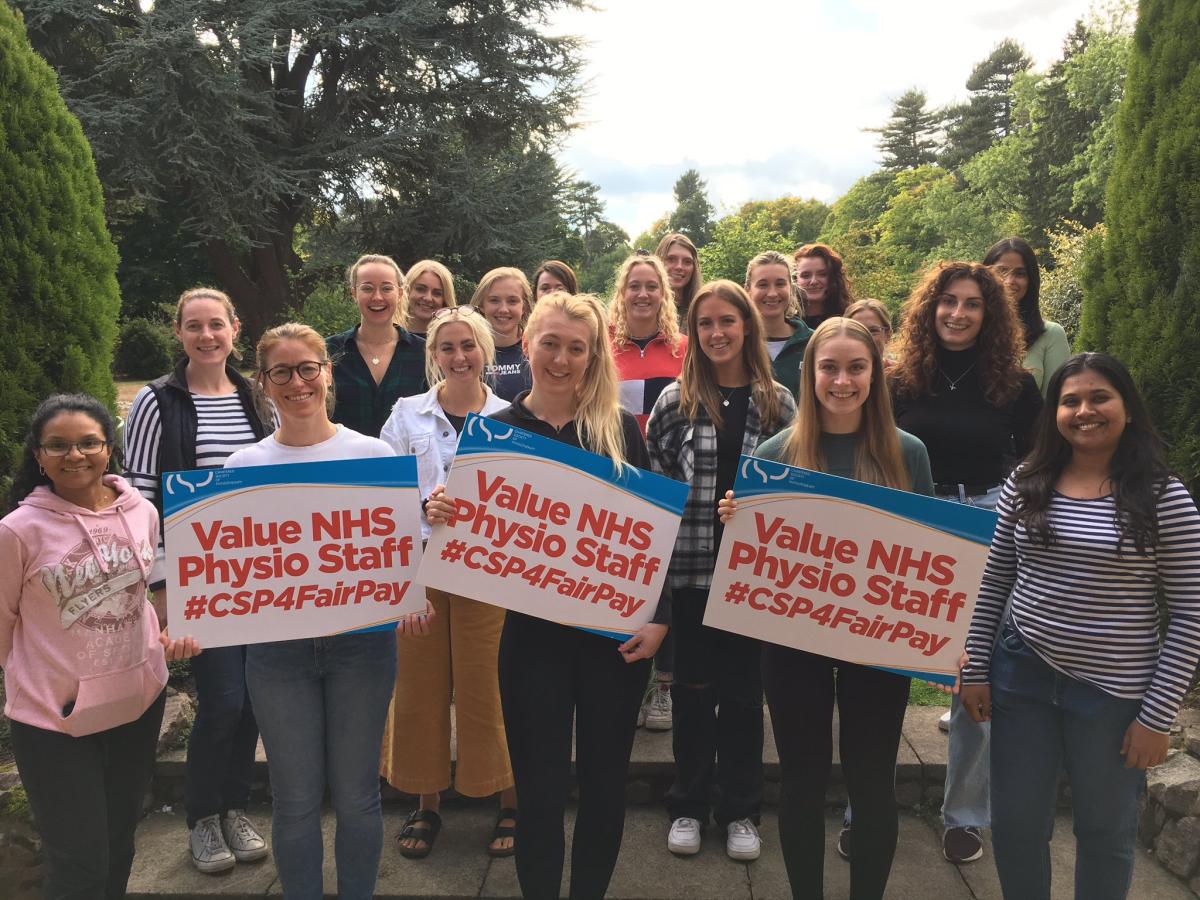CSP members working for Health and Social Care Northern Ireland (HSCNI) have voted to take strike action in their first ever ballot on pay and retention issues.

In the ballot which ran from 7 August to 11 September, 88 per cent of members voted yes to strike action. Turnout was 55 per cent.
Strike date
The CSP's member-led council has reviewed our results, and is now calling on HSCNI staff to strike on Thursday 21 September from 8.30am – 12.30pm.
The planned industrial action, called by CSP Council, follows the CSP achieving a mandate to strike across all seven employers in Northern Ireland.
Health and social care staff in Northern Ireland remain the lowest paid across the UK. They are yet to be offered a pay uplift for 2023/24 and have received no additional pay award for 2022/23.
Get strike ready
- View an organising clinic from Thursday 14 September for an hour-long session covering all you need to know the upcoming strike action, what to expect, and how to prepare.
- Support our pay campaign
- Send a message of solidarity to striking physiotherapy staff
- Download digital strike resources to show your support online
- Read FAQs about the pay process and industrial action
Claire Ronald, CSP senior negotiating officer for Northern Ireland, said: ‘The CSP has never held an industrial action ballot for pay in Northern Ireland and such a decision is always taken with great reluctance.
‘However, physiotherapy staff in Northern Ireland have now very clearly indicated with their votes that lack of a fair pay deal is impacting on their ability to stay in work and provide care for patients in Northern Ireland.
‘There is not a single physiotherapist or support worker who wants to strike - our members want to be at work, treating, rehabilitating, caring for their patients but the fact is they remain the lowest paid in the UK and the situation is not sustainable.
The lack of a functioning executive makes the situation extremely difficult, but we must find a way to address this.
‘The cost of living crisis is undoubtedly having an impact on our members, and it is critical that recruitment and retention of HSC staff in Northern Ireland is addressed.
‘In any industrial action we will always ensure the safety of patients is safeguarded – but these strikes remain entirely avoidable.’
Unacceptable
Stephanie Heasley, regional CSP rep, Northern Ireland said: ‘As a profession, we need to let the government know that years of real-term pay cuts are not acceptable.
‘The current cost of inflation, increase in utility bills, food bills and increasing energy costs with no change in pay is causing irreversible damage.
We have more staff in debt management programmes, using food banks and working additional employment to balance the books.
‘The knock-on effect is an increase in burn-out and stress amongst staff, increase in sickness absence levels and poor retention of staff.
‘Patient safety is compromised due to the lack of front - line staff and many staff are regularly working unpaid hours due to the increase in workload.’
Number of subscribers: 2



































